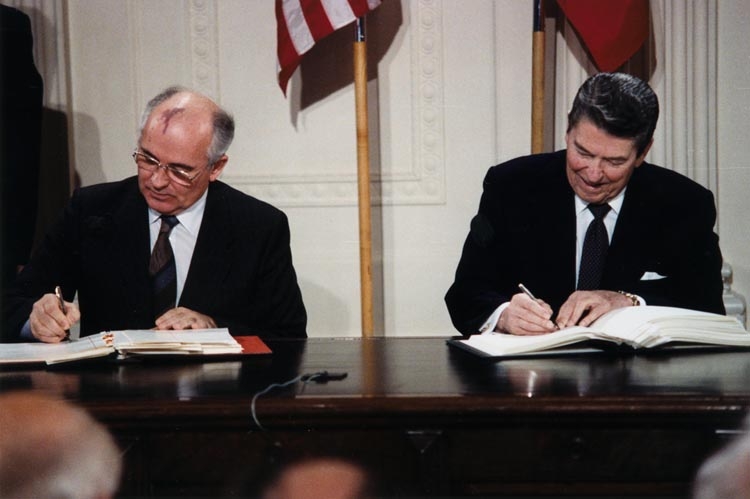In this mailing:
- Bassam Tawil: Palestinians Arresting Women; Where are the Media?
- Stephen Blank and Peter Huessy: Who Gains from the US Withdrawal from the Nuclear Arms Treaty?
by Bassam Tawil • November 19, 2018 at 5:00 am
Mahmoud Abbas does not want his people and the rest of the world to know that his security forces are arresting women for criticizing a social security law or providing financial aid to Palestinian families in the Gaza Strip.
Unlike Jbara and Marab'eh, Ahed Tamimi was lucky to be arrested by Israel. Had she been arrested by the Palestinian Authority, no one would ever have known.
This attitude is another example of the anti-Israel bias of the international media and community. It is yet another example of how the West gives the Palestinians a pass to violate human rights and crack down on dissent.
Last August, the Palestinian Authority (PA) protested because Israel arrested a Palestinian woman from Hebron on charges of incitement and affiliation with Hamas. The 42-year-old woman, Lama Khater, is also known as a strong critic of the President Mahmoud Abbas and his Palestinian Authority.
Khater's scathing attacks on Abbas and his government, however, did not stop the Palestinian Authority from condemning Israel and demanding her immediate release.
This was not the first time that the Palestinian Authority has condemned Israel for arresting a Palestinian woman who voiced criticism of Abbas and his policies. Last year, the Palestinian Authority condemned Israel for arresting Khaleda Jarrar, a senior member of the Popular Front for the Liberation of Palestine, one of several PLO terrorist groups. Jarrar was arrested by Israel for membership in a terrorist group and incitement.
by Stephen Blank and Peter Huessy • November 19, 2018 at 4:00 am
Russia has violated not only the Intermediate Range Nuclear Forces Treaty (INF), but, according to former senior White House nuclear arms official Frank Miller, every major arms-control agreement it has signed with the United States.
The same kind of deception has been characteristic of China.
The truth is that there is no INF arms-control regime to be saved. It is senseless to pine for a treaty that only one power -- the United States -- observes. Self-abnegation here only enables others to shoot first and make threats that the US cannot answer.

Those who warn against US withdrawal from the Intermediate Range Nuclear Forces Treaty (INF) are forgetting the very important lesson that made it a viable tool for ending the Cold War in the first place three decades ago: what President Ronald Reagan at the time called "peace through strength." Pictured: President Reagan and the Soviet Union's General Secretary Mikhail Gorbachev sign the INF in Washington, DC on December 8, 1987. (Image source: The White House)
The US renunciation of the 1987 United States-Soviet Union Intermediate Range Nuclear Forces Treaty (INF) has generated much skepticism in the arms-control community -- particularly in much of Europe, and from Japan.
These countries hoped not only to keep Russia and the United States in the 1987 treaty (despite Russia's major violations of the INF treaty), but persuade China to become a party to the treaty and thus be forced to eliminate the hundreds of INF-range missiles China has deployed in Asia and ranged against US and its allied interests.
Critics have presented the following five main arguments against the US move:
It enables Russia to build as many INF missiles as it likes, while simultaneously allowing Moscow to blame Washington for reneging on the treaty.
It imperils the entire structure of arms control, including the possible 2021 extension of the United States-Russia 2010 New START Treaty.
|
|



No comments:
Post a Comment